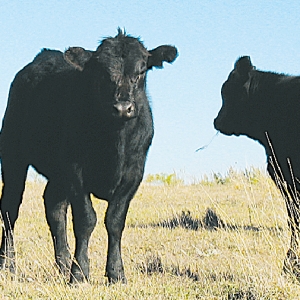Rabobank forecasts New Zealand's beef prices to firm next quarter, as supplies tighten after the higher, drought-induced slaughter volumes, and forecasts of a wetter-than-average winter also encourage producers to retain stock.
Rabobank animal proteins analyst Matt Costello said improved seasonal conditions during May and tightening of supply, allowed prices to recover for most categories during April and May.
"At the beginning of June, the North Island bull price averaged NZD 395c/kg, slightly higher than the corresponding week last year," Costello said.
Nonetheless, Costello said while some areas have improved, there will be tight feed and water supplies through winter in other regions.
"Total beef slaughter for the New Zealand beef processing season, October to April, remains 20% higher than the same period last year, at 1.529 million head," he said.
"Following the same trend as the first quarter, the majority of the additional numbers processed have been cows, with more than 600,000 processed during the seven months to April.
"This represents a 56% or 216,791 head increase year-on-year, although this compares to a low base year due to a better-than-normal season in 2012, with the majority of the kill attributed to the dairy herd."
After drought was officially declared across parts of the North Island in February, the Rabobank report shows slaughter volumes have continued to track well above year-ago-levels.
"As a result of the higher production, export volumes throughout 2013 have tracked well above last year, but are expected to slow heading into winter and spring," Costello said.
Total New Zealand exports from January to April increased 21% year-on-year, to 163,382 tonnes shipped weight, underpinned by strong demand for lean manufacturing beef.
While the US accounts for more than half of New Zealand exports, shipments to China have certainly been "a bright spot" so far in 2013, Costello said. "Exports reached 20,178 tonnes shipped weight, which is well ahead of the 1,211 tonnes sent last year."
Tightening of 'grey channel' trade, lower domestic Chinese production and stronger demand for New Zealand product has driven this growth, with the Chinese market firmly establishing itself as New Zealand's second-largest export market.
While the higher production has encouraged higher export volumes, average export values have been tracking slightly lower than the same time last year.
"It will be interesting to see how demand – particularly from the US – tracks if New Zealand supplies tighten and importers are required to pay higher prices," Costello said.



















